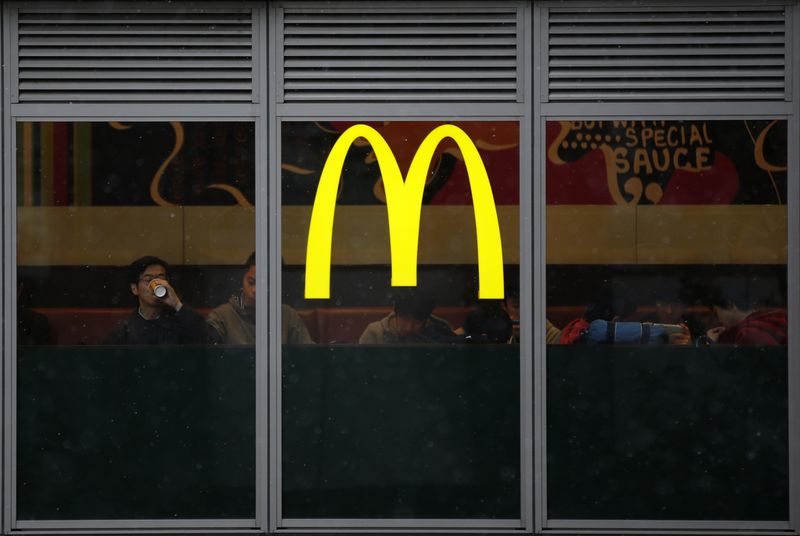Investing
Taco Bell is sued for false advertising of Crunchwraps, Mexican pizzas

© Reuters. FILE PHOTO: The logo of Taco Bell, a subsidiary of Yum! Brands, Inc. is seen on a store in Manhattan, New York City, U.S., February 7, 2022. REUTERS/Andrew Kelly/File Photo
By Jonathan Stempel
NEW YORK (Reuters) – Frank Siragusa was not happy that the Mexican Pizza he paid $5.49 for at a Taco Bell in New York City last September appeared to contain only half as much beef and bean filling as the photo in the chain’s advertising. So he sued.
In a proposed class action filed on Monday in Brooklyn federal court, Siragusa accused Taco Bell of deceiving consumers by falsely advertising its Mexican Pizza, Veggie Mexican Pizza, Crunchwrap Supreme, Grande Crunchwrap and Vegan Crunchwrap as containing “at least double” their actual content.
Siragusa, of Ridgewood, New York, included photos showing food bursting with beef, cheese and bright red and green vegetables, juxtaposed with “actual” photos of smaller, less vibrant food that other customers posted online.
Taco Bell ads are “unfair and financially damaging to consumers,” and “especially concerning now that inflation, food, and meat prices are very high and many consumers, especially lower income consumers, are struggling financially,” the complaint said.
The lawsuit seeks at least $5 million for Taco Bell customers who bought the five items in New York state in the last three years. He is not alleging that the items contain less content than Taco Bell describes on its website.
Taco Bell, a unit of Yum Brands, did not immediately respond to requests for comment.
Last year, one of Siragusa’s lawyers filed a still-pending lawsuit in Brooklyn accusing McDonald’s (NYSE:) and Wendy’s (NASDAQ:) over the actual versus advertised size of their burgers.
The other lawyer, Anthony Russo, filed a similar case last year in Miami against Burger King over its Whoppers. That lawsuit went to mediation, where it reached an impasse.
“Taco Bell does not adequately disclose the weight of the beef or filling,” Russo said in an email. “Plaintiff did not make any purchases of the product based on any weight disclosure but solely based on the picture of the product, as we believe most consumers do.”
The case is Siragusa v Taco Bell Corp, U.S. District Court, Eastern District of New York, No. 23-05748.
Read the full article here

-

 Side Hustles6 days ago
Side Hustles6 days ago5 Things That Could Significantly Impact Your Company in 2025
-

 Investing6 days ago
Investing6 days agoNFI Group surge after board reshaped with new appointments, chairperson By Investing.com
-

 Side Hustles7 days ago
Side Hustles7 days agoHow Failing 22 Times Paved the Way to My Success
-

 Passive Income5 days ago
Passive Income5 days ago3 Challenges Entrepreneurs Will Face in 2025
-

 Side Hustles4 days ago
Side Hustles4 days agoMicrosoft Is About to Begin Job Cuts. Here’s Why.
-

 Side Hustles5 days ago
Side Hustles5 days agoThe Canadian Media Lawsuit That Could Reshape Tech’s Future
-

 Investing7 days ago
Investing7 days agoApple Siri Settlement: Who Is Eligible for a Cash Payout
-

 Side Hustles7 days ago
Side Hustles7 days ago3 Strategies to Make Your Next Campaign Go Viral


















